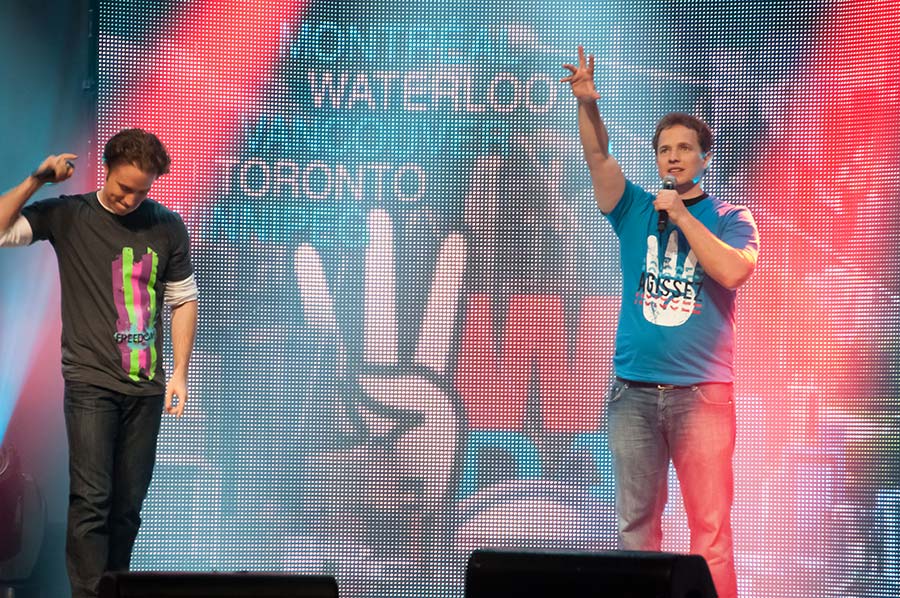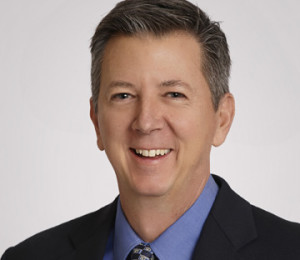Why are some kids only interested in playing video games while others take action to change the world? Real Leaders asked someone who knows.
As a 12-year-old, Craig Kielburger (picture above, left) convinced his parents that he needed to fly half-way around the world when he learned that children were being sold into slavery. Upon his return, he and his 14 year-old brother Marc founded Free The Children, now known as WE. Today they are empowering millions of young people to change their communities and the world, packing 16 stadiums each year in celebrity-marqued “WE Day” events.
Craig, how do you instill that level of empathy, skills and motivation in kids?
Both my parents created an awareness around serving others through their example, something that inspired my brother Marc and me to want to serve the children of the world. When we were young, my mother would always acknowledge homeless people by asking their names and how long they’d been living on the streets. She would pull my brother and me into that 30-second conversation, and short as it was, it left a mark on us for the rest of our lives. We only realized later in life that she’d taught us the value of conscious engagement with others, something we can only clearly see now – as young adults ourselves, trying to engage with kids around the world. Of all the lessons parents teach their kids, it’s sometimes the small ones that can have the biggest impact.
Marc and I wrote a book called “The World Needs Your Kid” on how to raise children who will care and contribute to society. If you walk into any bookstore section on parenting you’ll find endless literature on how to get your child into Ivy League universities, the right school or supercharging your baby’s brain – all achievement focused. But it’s hard to find a book about fostering compassionate and engaged kids. However, study after study has shown that parents most want to instill values like responsibility, caring, loyalty, happiness, and honesty in their kids. They rarely say I want my kid to be Valedictorian or Captain of the football team.
We believe that volunteering and service are crucial parts of any kid’s development and will lead to the values I have just mentioned. This is even borne out by scientific research. The University of Virginia ran a structured volunteer program, and after four years, those that had volunteered ended up with higher grades and made more responsible life choices. These values do not have to be at the expense of traditional family values either. Kids can still succeed academically and in the workplace while gaining valuable insights through community service.
It’s important to clarify the differences between volunteerism and service. Volunteerism might be picking up trash or helping out in a soup kitchen – all important and wonderful things to do – but service learning furthers academics and life skills.
We’ve created an Advance Placement (AP) Service-Learning curriculum. For example, in a service-learning AP Biology class, you might test the water in your community for purity. In Spanish class, you might study with a new immigrant to your country. In computer science, you wouldn’t only code apps, but also engage with students across the country with social apps to solve social problems. We’ve developed a system whereby completed educational courses with service components built into them count as credits toward your qualifications. Service credits can now reflect on high school transcripts or university registrar office records. It’s a revolutionary moment, and proof that we are shifting learning from memory-based to experiential learning. While still at high school, teenagers can now be involved in a service that creates social impact.
There are many studies that show students learn better through doing. Grades, marks and graduation are important, but equally so is the development of life skills – what some people would call leadership.
Leadership skills include skills such as emotional intelligence, teamwork, critical thinking and grit. These may be seen as “soft skills” but they are incredibly important and best taught through service programs. Real leadership requires group-led action, community engagement and persuasive communication.
In the United States we already have many great service initiatives, such as the Peace Corps, but many require members to be over the age of 18. I believe that the earlier you intervene as a parent the greater the benefits down the line. We need to focus on kids from the ages of 8 to 11. These are critical ages in which to develop a sense of self and there is currently no national program in the United States for developing the idea of service in these early years.
I’ve seen first-hand over the last 20 years how this is possible. In the beginning, our organization (WE) just focused on international development. Then Oprah got involved and pledged to build 100 schools in our developing communities and gave us coverage on her shows.
Despite the attention and media coverage from influential people, we realized an amazing thing – children were the ones wanting to help the most.
Kids in North America established a sister village with counterparts on the other side of the globe. More than 5,000 young people went on service trips with us and an incredible global education began. WE Schools is now a yearlong service learning program of youth making a difference in their local and global communities. These actions are celebrated at WE Day events which now fills 16 stadiums with 200,000 kids each year and is a reminder of how children should not be seen as problems to be solved, but rather, as problem-solvers themselves.
An incredible thing has started to happen at our WE Day events. CEOs and people from all walks of life are flying with their kids to attend. Parents will discuss leadership with their kids and reinforce the messages from WE Day as part of their family values. Kids used to see charity events as an evening that took their parents away, something they were never invited to attend. Now they create a family experience together, one focused on service.
Some of our speakers have included Magic Johnson, Richard Branson and Prince Harry, who are all extremely busy people, yet they have taken the time to speak to young people, realizing the importance of inspiring our youngest generation today to find their own solutions to the world’s problems.
Real Leaders: It’s amazing what a couple of determined kids can accomplish!
For more information go to www.We.org




































